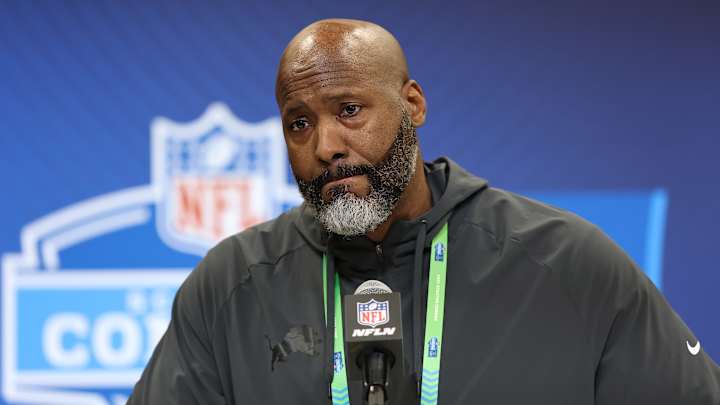In 2003, the Detroit Lions had a chance to bring future general manager Brad Holmes into their organization—but a fateful decision steered him down a different path. It’s a twist of fate that, in hindsight, may have been a blessing in disguise for both Holmes and the Lions.
Today, Brad Holmes is widely recognized as a central figure behind Detroit’s resurgence. His sharp eye for talent in the draft and his willingness to go after players he and head coach Dan Campbell believe in have been key ingredients in the team’s return to prominence. Under his guidance, the Lions have made their first NFC Championship Game appearance in over three decades and secured back-to-back division titles. But Holmes’ journey to the Lions didn’t start with them—it actually started with a near-miss.
Back in 2003, Holmes wasn’t involved in the NFL at all. He was working as a PR intern for the NBA’s Atlanta Hawks and had spent the previous year tirelessly trying to break into NFL scouting. He’d sent applications to all 32 teams with no success. Even within the Hawks organization, Holmes recalled trying to meet with one of their scouts for guidance—only to be turned away.
Then came the NBA All-Star Game in Atlanta. Around that time, Holmes landed an interview with Duane Lewis, who was the PR Director for the then-St. Louis Rams. That conversation opened the door to a PR internship with the Rams. A year later, he transitioned into their scouting department—marking the beginning of a nearly two-decade career with the organization that shaped his football philosophy.
But what many don’t know is that Holmes had already accepted a different internship before the Rams called: one with the Detroit Lions.
“I actually said yes to Detroit before the Rams offer came,” Holmes shared during a recent appearance on the Field Talk Podcast. He was seriously considering moving forward with the Lions, until he started looking more deeply into the staff histories of both teams. That’s when he noticed something critical.
The Rams had a pattern of promoting their interns into full-time staff positions. The Lions, by contrast, had no such track record.
That observation changed everything.
At the time, the Lions were led by Matt Millen, who had been hired in 2001 as the team’s CEO and general manager. Under Millen’s leadership, the Lions struggled mightily, ending his tenure with a dismal 31-81 record. Holmes likely saw the writing on the wall. Had he stayed with the Lions, he may have completed a year as a PR intern and then been cut loose, with no guarantee of another opportunity in the NFL.
That single decision—to go with the Rams—may have changed everything. Not only did Holmes get a real shot at growth within the Rams’ system, but he also got the chance to learn under respected football minds like Les Snead, who would eventually become the Rams’ GM. It was an environment that allowed Holmes to grow, make mistakes, and refine the skills that would later define his leadership style.
That’s not to say Holmes wouldn’t have found success elsewhere. His drive and talent were evident from the start. He took a PR internship and turned it into a scouting career. Another team might have recognized that same spark and given him a chance. But the stability and mentorship he found in Los Angeles played a major role in shaping the executive he is today.
Years later, Holmes had a shot at an interview during the NFL Combine as part of a program aimed at developing future coaches and general managers. He prepared diligently—but misjudged the nature of the interview. Expecting business-related questions, he was instead hit with pure football inquiries.
“I bombed it,” Holmes admitted.
But he didn’t give up. Eventually, he got another shot at the same program, and this time, he nailed it. Lions COO Mike Disner saw the footage while the team was hunting for a new general manager. That interview helped put Holmes back on the Lions’ radar—this time as a seasoned, ready leader.
It’s one of those stories that makes you wonder about the domino effect of seemingly small choices. Had Holmes gone with the Lions back in 2003, his career might have looked very different—and the Lions’ current success story might never have happened.
But by losing him then, Detroit set the stage to gain a far more experienced and visionary leader two decades later. Sometimes, the long game really does pay off.
